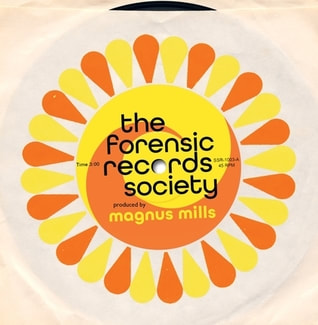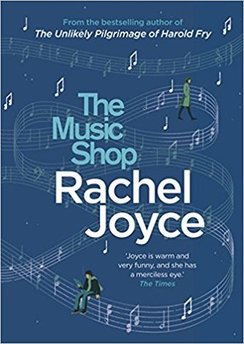The Forensic Records Society by Magnus Mills
If you want to get underneath the sometimes counterintuitive ways we behave in groups, sign up for a course on group dynamics based on psychoanalytic theory. But don’t expect a lecture. Not only are you unlikely to need a notebook, your “leader” will probably have very little to say. But if you persist with the uncomfortable task of “studying the group processes as they emerge in the here and now”, you stand to learn a great deal about the way unconscious processes impact on social interactions. If you can’t, or don’t want to, do that, the latest novel from king of deadpan humour, Magnus Mills, might well be the next best thing.
The unnamed narrator and his friend, James, are passionate about vinyl. In a little used room in their local pub, they establish a weekly meeting of like-minded individuals to listen forensically to a selection of records. With strict rules about starting exactly on time, and listening without comment or judgement, this society of geekish men proves moderately successful. But no group is ever completely static. When a latecomer is refused entry, he establishes a rival Confessional Records Society meeting in the same room on a different night, and the stage is set for intergroup fantasies and suspicions. But even without this external threat, the Forensic Records Society’s boundaries have already been breached with the arrival of Alice to provide a bar service in the room and Keith bringing LPs instead of singles. Yet almost from the start there have been anomalies, with comments from Chris, brief as they are, tolerated more than from any other member.
The information sheet from publisher Bloomsbury (who provided my review copy) suggests the book would appeal to vinyl fans, but I think it’s easier to enjoy the absurdity if, as a reader, you’re not all that interested in the records (of which I recognised less than half). It’s amusing how seriously the group takes itself, and how these buttoned-up men use the titles of the records they choose to voice their descent. Yet, as in the excerpt I’ve quoted at the beginning, the parallels with the wider social system, particularly contemporary British politics with its backtracking, splits and mergers, is all too apparent. As with the psychoanalytic groups I mentioned in the introduction, the simplicity and clarity of the task the society has set itself, and the outlawing of the ordinary chitchat that oils the wheels of other interactions, makes the intra- and intergroup struggles more apparent. You don’t need to be a music lover to recognise the conflicts of leadership and followership, envy and the twin fears of exclusion and loss of the separate self.
This is Magnus Mills’ ninth novel, but only the second of his I’ve read. Although I wasn’t impressed with his third novel, The Scheme for Full Employment, written in a similar style with little character development, it was many years ago and I imagine we’ve both changed since then so, after a heads up from a Guardian review, I thought I’d give this one a try. I’m very glad I did.
The Music Shop by Rachel Joyce
The only child of a bohemian heiress, lying on the floor together listening to records was the nearest Frank ever came to love. Peg taught him about the pictures painted by melody and the power of the pause between the notes, but he might have been happier had she knitted him a jumper or cooked him a hot meal. Since her death, and ultimate betrayal, he’s eschewed relationships more intimate than those that take place in the shop.
Frank’s life is safe, if stagnant, until a mysterious woman in a pea-green coat and eyes as black as vinyl faints outside his shop. Ilse Brauchmann is another wounded soul with the magic touch, in her case for fixing machinery. The two are immediately drawn to each other, but far too scared of the risks of getting close. So Ilse asks Frank to teach her about music and he, reluctantly, agrees.
Rachel Joyce’s debut, The Unlikely Pilgrimage of Harold Fry, was an international bestseller. I came to her work through her follow-up, The Love Song of Miss Queenie Hennessy, about which I had mixed feelings, relishing the denouement but not connecting with the humour and finding the overall tone a little light for my tastes. Although excited to spot the epigraph from Donald Winnicott in The Music Shop, and a finale that encompasses the Hallelujah chorus from The Messiah, my verdict on her fifth book is similarly lukewarm (though not so cold and bitter as a one-star). Thanks to publishers Doubleday for my advance proof copy.
For more on the romance of record shops, read my short story In Search of Mr Right. There’s also a scene involving a mother and son connecting through music in my second novel, Underneath.
For more on unconscious processes, this time in relation to writing fiction, I’m delighted that my guest post The creative unconscious is now live on the fabulous website Women Writers, Women’s Books.
























 RSS Feed
RSS Feed





















